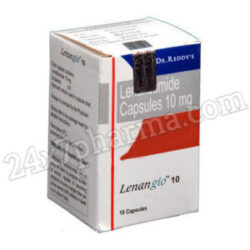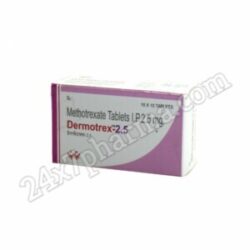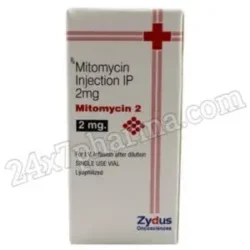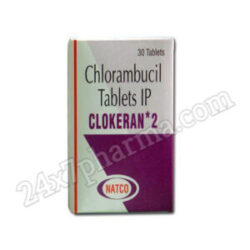Cancer/Oncology
Showing 1–16 of 155 resultsSorted by latest
Lenangio 10mg Capsule 10’S
Original price was: $41.$34Current price is: $34.Letoval 2.5mg Tablet 10’S
Original price was: $26.$21Current price is: $21.Goodova L 5mg Tablet 5’S
Original price was: $21.$17Current price is: $17.Dermotrex 2.5mg Tablet 30’S
Original price was: $8.$7Current price is: $7.Letozis 2.5mg Tablet 15’S
Original price was: $28.$24Current price is: $24.Caluran CP 50mg Tablet 30’S
Original price was: $49.$41Current price is: $41.Busarlin 7mg Injection 1’S
Original price was: $71.$59Current price is: $59.Leuprolide 3.75mg Injection(Depot) 1’s
Original price was: $134.$112Current price is: $112.Herduo 250mg Tablet 30’s
Original price was: $144.$120Current price is: $120.Mext 10 mg Tablet 30s
Original price was: $21.$18Current price is: $18.Kryxana 200mg Tablet 21’s
Original price was: $540.$452Current price is: $452.Castramid 50mg Tablet 10’S
Original price was: $23.$19Current price is: $19.Flonida 1% Cream 10gm
Original price was: $7.$6Current price is: $6.Mitomycin 2 Injection 2mg
Original price was: $23.$19Current price is: $19.Folitrax 7.5mg Tablet 30’S
Original price was: $23.$19Current price is: $19.Clokeran 2mg Tablet 30’S
Original price was: $46.$38Current price is: $38.ABOUT CANCER
Cancer is a medical condition where there is an uncontrolled growth and spread of abnormal cells which further form into tumors and start abnormal functioning of the organs. In the latter stages of disease, the cancer cells can spread to surrounding areas and different areas of the body. Early diagnosis can help in thorough understanding, prevention, and treatment. This diesease can be caused by different factors including lifestyle and genetic factors.
CAUSES
There are various causes of cancer. Some of them are:
- Genetic factors that risk the occurrence of certain types of cancer in individuals.
- Environmental exposure to smoke, pollutants, and certain chemicals that might lead to the disease.
- Infections such as HPV and hepatitis might increase the risk of the disease.
- Bad lifestyle including smoking and drinking and not taking proper diet.
- In some cases, a weakened immune system which is common in HIV and post-transplant patients might lead to the occurrence of disease.
SYMPTOMS
The symptoms of cancer depend on the stage and specific type of the cancer. However, the common signs are:
- Persistent coughing
- Yellow or pale skin
- Changes in bowel movements
- Continuous fatigue
- Difficulty in swallowing for a long time
- Chronic pain
- Extreme unexplained weight loss
DRUGS FOR CANCER TREATMENT
Oncology drugs are used for the treatment of cancer and involve different types of medication. Cancer treatment is slowly and steadily improving and evolving. Your doctor will recommend the best medicine for cancer depending on the stage. The following are the types of Oncology drugs:
CHEMOTHERAPY
Cancer cells grow, divide, and spread rapidly. Chemotherapy drugs are a type of cancer treatment medication that destroys the fast-growing cancer cells through a certain chemical agent. This medication can be taken orally, through injections, or intravenously. Common chemotherapy drugs include Paclitaxel for lungs, ovary, and breast cancer and Cisplatin for testicular and bladder cancers.
IMMUNOTHERAPY
Immunotherapy is a kind of oncology drug where the body’s immune system is enhanced which helps in recognizing and destroying cancer cells using the body’s immune system. A few common immunotherapy medications include Pembrolizumab, Ipilimumab, and Rituximab.
TARGETED THERAPY
Targeted therapy also known as personalized medicine, disrupts and blocks the molecular pathways involved in cancer growth and kills them without harming the other cells of the body. Common medications involved in this type of therapy include Imatinib, Trastuzumab, Alectinib, and Bevacizumab.
HORMONE THERAPY
Hormone therapy is a type of cancer meds that is commonly used in breast and prostate cancer which are hormone-sensitive types of cancer. The medication works by modifying the hormone levels and reducing the growth of cancer cells. The medication used in this oncology drug includes Tamoxifen and Enzalutamide.
BENEFITS AND RISKS OF ONCOLOGY DRUGS
The medications used in the treatment have some benefits and along with comes the side effects as well. Depending on the type and stage of cancer an individual has, these drugs might:
- Prevent from spreading of cancer cells in different parts of the body.
- Cure cancer.
- Reduces the growth of cancer.
- Destroys cancer cells that might be left post-surgery.
- Shrink or reduce the size of the tumor, if any, so that it can be removed with the help of surgery.
On the other hand, there are some side effects which are:
- Hair loss
- Nausea
- Fatigue
- Vomiting
- Reduced number of white blood cells
- Rash
- Loss of appetite
- Mood swings
- Flu-like symptoms, and others.
Top Selling Products of Cancer Medicine
FAQs
Can the medication cure all types of cancers?
The effectiveness of the medication depends on the type and stage of cancer an individual has. However, you will be provided with the best medicine for the treatment of cancer.
How can we take cancer medications?
The cancer meds are given orally, intravenously, topically, or through injections depending on the type of cancer.
















